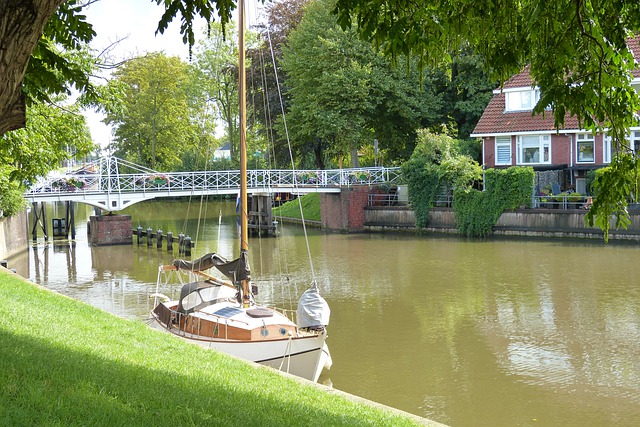So, you want to rent your home to fund sailing full time and/or live your dream life. Is renting your home to fund your dreams a good idea? Will you make enough to sail or live full time on the rent from your home? This may be more complicated then you think.
As a quick disclaimer, I am neither an accountant nor a financial advisor, but I have been renting my home for over 5 years. Additionally, I bought the property with the intent of it being an income property to support my income while I pursue my dreams. I know a thing or two about how feasible it is for you to rely on this as your income to sail, or really any other dream.
That all said, the purpose of this blog is to give you some things to think about if you are thinking about renting your home as a means of funding your dreams. Even if you don’t own property, but are thinking about investing in it as income property, this will all still apply.
The Long Term Investment
Let’s get the most important thing off the table; having rental property is a long term investment. The standard for a home mortgage is 30 years. That is a long time. I can’t make it any clearer, that this isn’t an overnight plan. Unless you don’t plan on moving forward towards living the dream for quite some time, this is not the plan to start today. Best case scenario you will be able to pay off your loan in 10-15 years. That’s still a long time.
However, if you already own a home and have a substantial amount paid off, there is a good chance that you can pay it off and use it as partial or even full time income. Unfortunately, if you are not in this position, you have a long row to hoe if you want to rely on renting property to fund your sailing or dreams.
Is your home a good income prospect?
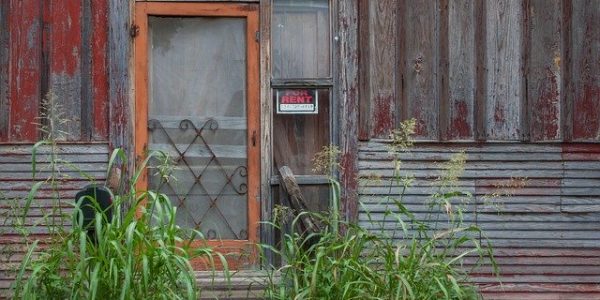
There is a lot to consider if you are planning on using your home or buying a home as and income property. Will your property even be a good rental? That should be the first thing you ask. There are a lot of moving parts that will affect this. I will try to hit all the most important ones, but please keep in mind I can’t put them in order as they are all equally important. I will be using my rental property as an example throughout this as an example.
Rental value
The first, and the base of all other things, is to consider what is the rental value of the property. I was always told that you can rent your property for more then what your mortgage is, this is wrong. I would say that as a general ballpark you can assume it will be right around your mortgage, but to really know you have to do a rental property analysis on this.
You can do this one of two ways, get a professional to do it for you or do it yourself. I chose to go with the pro, mostly because I needed, and recommend, property management anyway. To do it yourself you just need to look at all the rentals in the area and look at what all the similar properties are renting for. This will give you a range and you will need to determine all the different aspects of where exactly what your property is in that spectrum.
An even more general ballpark is to look at the property value. In the most general terms, your property should rent for between 0.8% and 1.1% of the value of the home. My property falls in that range at 0.875%, so I would say that statistic is probably a good starting spot.
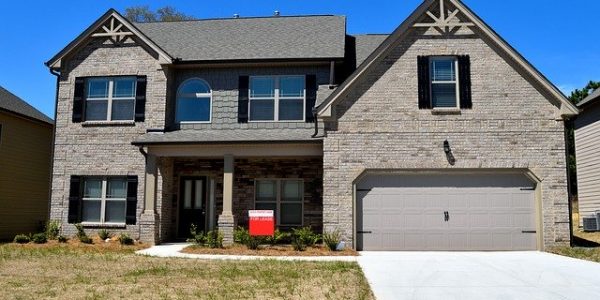
Location
You know what they say, “location, location, location.” When it comes to rental property, it is no different. If your property isn’t in a place that people want to rent, it doesn’t matter what the value is, the rental value will be low. As my dad always says, “it’s only worth what someone is willing to pay.”
As a prime example, I tried to be smart. I purchased my home in an area that would be a good commuting location to the new prison being built. I figured renting to Correctional Officers would be a good bet for not having issues with bad credit and poor tenants. Also, the area around the property was growing with a new school and new strip mall being built.
This didn’t end up being the case though, the area I was in did grow, but the house ended up being in the seedier side of the area. Oddly, the neighborhood that my neighborhood is connected to, is fine. It’s hard to predict, but defiantly effects the rental value and the type of tenants that apply for rental.
Management fees
This doesn’t apply to everyone, but if your dream will take you away from the area, ever, you will really, really want to consider having a property manager. I say this because I know, if it can go wrong, it will. Murphy’s Law says so and I know so.
I you are having someone watch your property, than you will need to pay them. Most property managers will charge a percentage of the rent. This is usually between 10% and 15%. This is something you need to consider as you will need to pay management fees monthly when occupied and other fees for months while the rental is vacant. The fees while vacant are generally for advertising, showing the property, and attending to checking and maintaining it while not occupied.
I do recommend a property manager. I also recommend you talk to and interview several before you choose one. You want to find someone you can work with and more importantly that you can take bad news from. If you don’t like your property manager, when they call you to give you bad news or tell you that you need to change something, it will end bad.
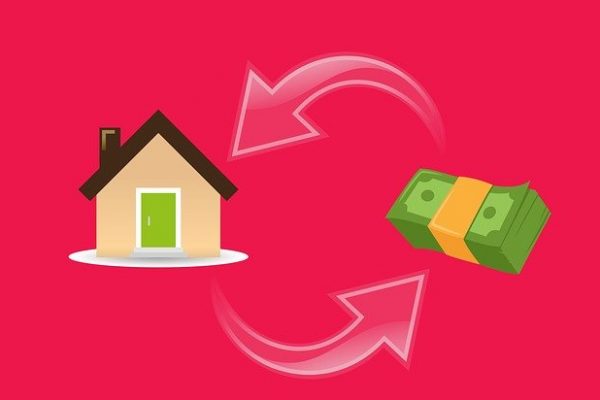
Maintenance
Maintenance costs will vary greatly from year to year so it is extremely hard to gauge what to budget in this area. I took a look back at the full time I have rented my property and took an average. I then took my knowledge of boat maintenance and how to budget for that and made a few connections.
On my cheapest year, I spent 1.5% of the value of the house on maintenance and on my most expensive year I spent 3.3% of the value of the property on maintenance. If I had to give you a ballpark range as to where to shoot, I would budget about 2-3% for maintenance with a buffer in your savings account.
When I say a buffer, I keep $10,000 in my account at all times to cover things like the roof blowing off. I know this sound like a lot, but when you have a tenant, you can’t just wait till the insurance company covers the repair, you have to fix it and then file with the insurance. If you don’t keep the renters happy they will move out on you.
Insurance and Taxes
Insurance and taxes are something that a lot of people forget to budget for. When you are paying your mortgage, you are also paying your insurance and taxes with it. Once you pay off your property, you still have to pay for these things. The tricky part is that this isn’t just a monthly payment like it was when you were paying it into your escrow account; it is in big lump sums.
You will need to budget for this monthly out of your rental income. If you don’t have that money in the bank when tax or insurance time comes around, it can be quite the sticker shock. If you have that buffer saved up it will save you some, but if you are living fully on your rental property, it will be hard to make the difference up if you drain the emergency account too much and an emergency comes along.
Tenants
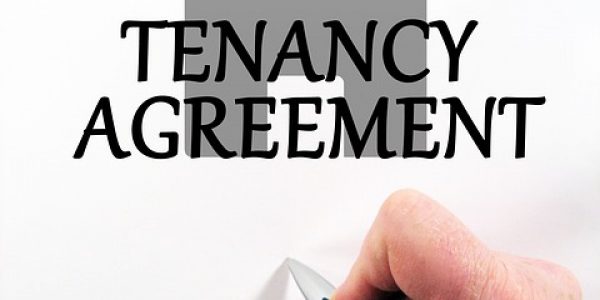
Having good tenants is always preferred, but regardless of everything you put in place, there are no guarantees. Even with credit and reference checks, I have had good and not so good tenants. I have had tenants move out and barely had to clean and other leave thousands of dollars of damage behind.
You can’t budget for this, that is why I recommend budgeting between 2-3% of the property value for maintenance. When you look at 3% out of the value, divide it by 12 and take that out of your income from rent, it hurts. What hurts more is haveing your property manager call you up and say, “I need you to write a $4000 check to get this fixed.”
This is another good reason to have a good property manager. Vetting you tenants helps and having the ability to have someone do checks while you are away is critical. When I say “checks”, there are certain annual maintenance items that need to be performed throughout the year. So, take advantage of this and have your property manager give you a report as to what they think of the tenants and how they care for the residence.
The Market
Another aspect that you need to take into consideration is the market. This ebbs and flows and is never predictable as to whether or not your property will rent fast or be vacant for months between tenants. There is nothing more frustrating than relying on rent to pay the bills and having your property vacant for months at a time.
There are also times that houses just don’t move. Whether it is a rental or for sale, during the holidays and school year the market is generally slower. It is just something that is.
Because of this, you have to consider that the bills keep coming when it is vacant. There is still things that will break, still taxes to pay, still insurance bills, and you still have to pay whoever is taking care of your property while you are out living your dreams.
This is something to be aware of and plan for rather than try to control. There is really no way to try and predict it, you just have to be prepared for. If it sits to long, you often have to adjust your rent to compensate for slow markets so you don’t have a vacant unit for long periods of time. You will lose a little profit doing this, but it’s better then going bankrupt.
Other Rental Options
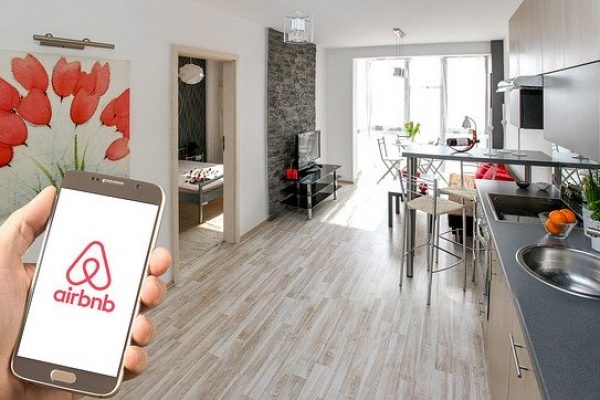
If you don’t plan on sailing or traveling full time as part of your dream, there are short term rental options for that. I would also look at this option as full time income if I was in a good spot for this, you can probably make more by piece mailing rent on a nightly rather then monthly basis.
Airbnb is probably the biggest and most recommended place to look into this. Given where I am at the moment, if my rental were in a location that would support short term rental; I’d already be doing it. Unfortunately I would only have a couple times a year I could rely on being booked and the rest of the year would be hit and miss. On the other hand, if you are in an area where people travel and stay a lot, you should look into it.
Wrapping Up
As you can see there is a lot to consider when it comes to renting your home to fund your sailing dreams. When you take into consideration all the expenses that have to come out of your rent, you need to look at what is left when making this decision. I always suggest giving yourself 5-10% wiggle room in your budget on top of this.
Is it possible to live your dreams off your rental income, yes, but more likely than not you will be renting as a partial income. Even if you are one of the few lucky ones who can make it only on your rental, given how the market in general and how Murphy’s Law loves me, I also recommend a backup plan.
In addition to a backup plan, as I mentioned before, have a good buffer. Plan for Murphy’s Law; trust me.
If you enjoyed this, please feel free to share it on Pintrest, Facebook, or Twitter using the share buttons on this page.
Happy Sails!

